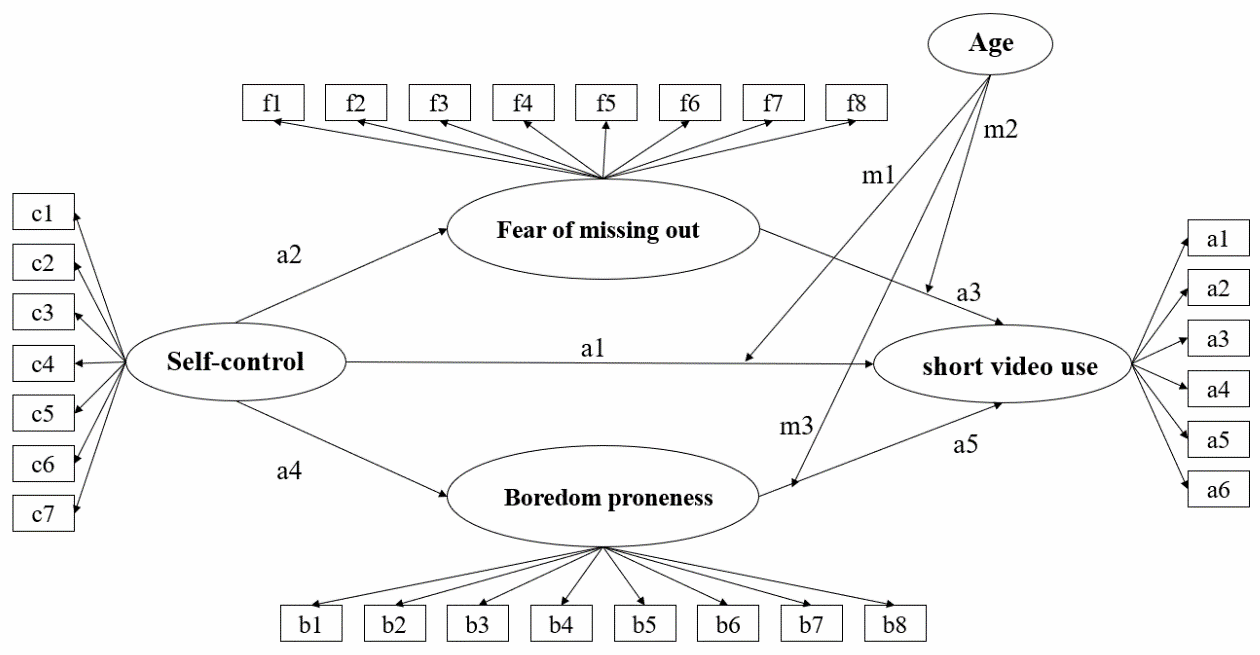Found 1 results
Open Access
Article
14 May 2025Age Differences and Underlying Psychological Mechanisms in Short Video Use: From an Adult Lifespan Perspective
Short videos attract users across various age groups; however, studies focusing on single populations, such as adolescents, have limited the understanding of possible age-related changes and differences in short video use. The aim of this study was to examine age trends in short video use and to identify age differences in the psychological mechanisms underlying use behaviors. A total of 1006 adults aged 18–83 years participated in the study and completed a battery of assessments, including short video use, self-control, social motivation, and covariates. The results showed that age moderated the effects of boredom proneness and fear of missing out on short video use. Self-control was associated with people’s use behavior, and boredom proneness and fear of missing out mediated this association across age. Specifically, older adults’ use was more likely to be associated with alleviating boredom rather than fear of missing out, whereas both were associated with young adults’ use. Investigating these mechanisms may provide a better understanding of the factors that correlate with short video use and help target interventions to different age groups.
